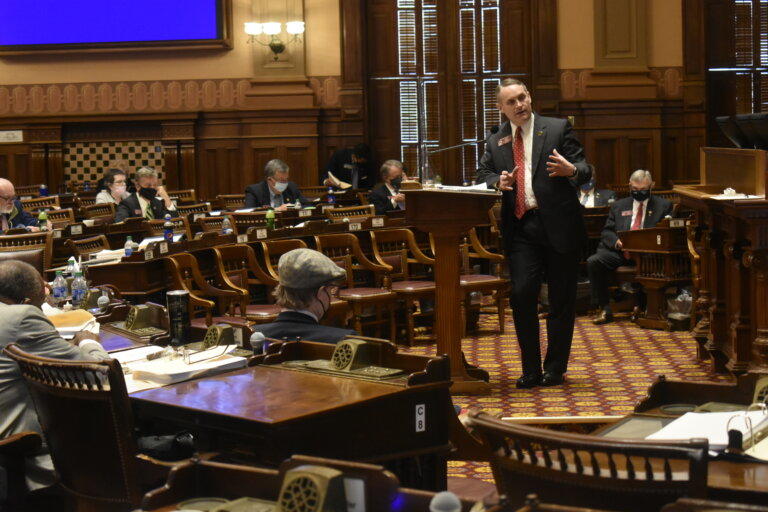
Caption
Acworth Republican Rep. Ed Setzler speaks in the House chamber in March. Setzler wants state lawmakers to consider whether the state should take action against alleged censorship from large social media companies.
Credit: Ross Williams/Georgia Recorder

